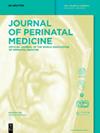尊重历史:当代妇产科学的一个重要方面
IF 1.4
4区 医学
Q3 OBSTETRICS & GYNECOLOGY
引用次数: 0
摘要
"不能记住过去的人注定要重复过去"。这句格言强调了历史意识在医学中的重要性,尤其是对妇产科医生(ObGyns)而言。妇产科医生通过对孕妇、胎儿和新生儿的护理,对社会健康产生了重大影响,这使他们在倡导具有持久社会效益的健康倡议方面具有独特的优势。尽管医学史非常重要,但它在医学课程中的比例却很低,从而失去了培养批判性思维和伦理决策的机会。在当今生殖权利受到威胁、疫苗误导和意识形态有害的环境下,妇产科医生必须倡导全面的历史教育。医学史,尤其是与种族主义、歧视、种族灭绝、大流行病和战争等社会问题相关的医学史,为应对孕产妇死亡率、生育权、疫苗犹豫不决和伦理问题等挑战提供了宝贵的背景资料。了解塔斯基吉研究和沙利度胺悲剧等历史里程碑事件和著名的违反伦理事件,有助于更好地开展工作,保障患者权利。卫生、抗生素、疫苗和产前护理等方面的技术进步使这一领域发生了革命性的变化,但当代妇产科医生必须对从过去的挑战和成功中吸取的教训保持警惕。将历史知识融入医学培训可提高临床技能和道德责任感,促进创新并改善医疗效果。通过反思历史成就及其影响,现在和未来的妇产科医生可以推动该领域的发展,确保以全面和符合伦理的方式为患者提供护理。本文强调了历史知识在塑造现代妇产科实践中的关键作用,倡导将其纳入医学教育,以应对当代健康挑战和伦理考量。本文章由计算机程序翻译,如有差异,请以英文原文为准。
Respect for history: an important dimension of contemporary obstetrics & gynecology
“Those who cannot remember the past are condemned to repeat it. ” This maxim underscores the importance of historical awareness in medicine, particularly for obstetricians and gynecologists (ObGyns). ObGyns significantly impact societal health through their care for pregnant women, fetuses, and newborns, uniquely positioning them to advocate for health initiatives with lasting societal benefits. Despite its importance, the history of medicine is underrepresented in medical curricula, missing opportunities to foster critical thinking and ethical decision-making. In today’s climate of threatened reproductive rights, vaccine misinformation, and harmful ideologies, it is imperative for ObGyns to champion comprehensive historical education. The history of medicine, particularly in relation to societal issues – such as racism, discrimination, genocides, pandemics, and wars – provides valuable context for addressing challenges like maternal mortality, reproductive rights, vaccine hesitancy, and ethical issues. Understanding historical milestones and notable ethical breaches, such as the Tuskegee Study and the thalidomide tragedy, informs better practices and safeguards patient rights. Technological advancements in hygiene, antibiotics, vaccines, and prenatal care have revolutionized the field, yet contemporary ObGyns must remain vigilant about lessons learned from past challenges and successes. Integrating historical knowledge into medical training enhances clinical proficiency and ethical responsibility, fostering innovation and improving health outcomes. By reflecting on historical achievements and their impacts, current and future ObGyns can advance the field, ensuring comprehensive and ethically sound approaches to patient care. This paper highlights the crucial role of historical knowledge in shaping modern ObGyn practices, advocating for its integration into medical education to address contemporary health challenges and ethical considerations.
求助全文
通过发布文献求助,成功后即可免费获取论文全文。
去求助
来源期刊

Journal of Perinatal Medicine
医学-妇产科学
CiteScore
4.40
自引率
8.30%
发文量
183
审稿时长
4-8 weeks
期刊介绍:
The Journal of Perinatal Medicine (JPM) is a truly international forum covering the entire field of perinatal medicine. It is an essential news source for all those obstetricians, neonatologists, perinatologists and allied health professionals who wish to keep abreast of progress in perinatal and related research. Ahead-of-print publishing ensures fastest possible knowledge transfer. The Journal provides statements on themes of topical interest as well as information and different views on controversial topics. It also informs about the academic, organisational and political aims and objectives of the World Association of Perinatal Medicine.
 求助内容:
求助内容: 应助结果提醒方式:
应助结果提醒方式:


